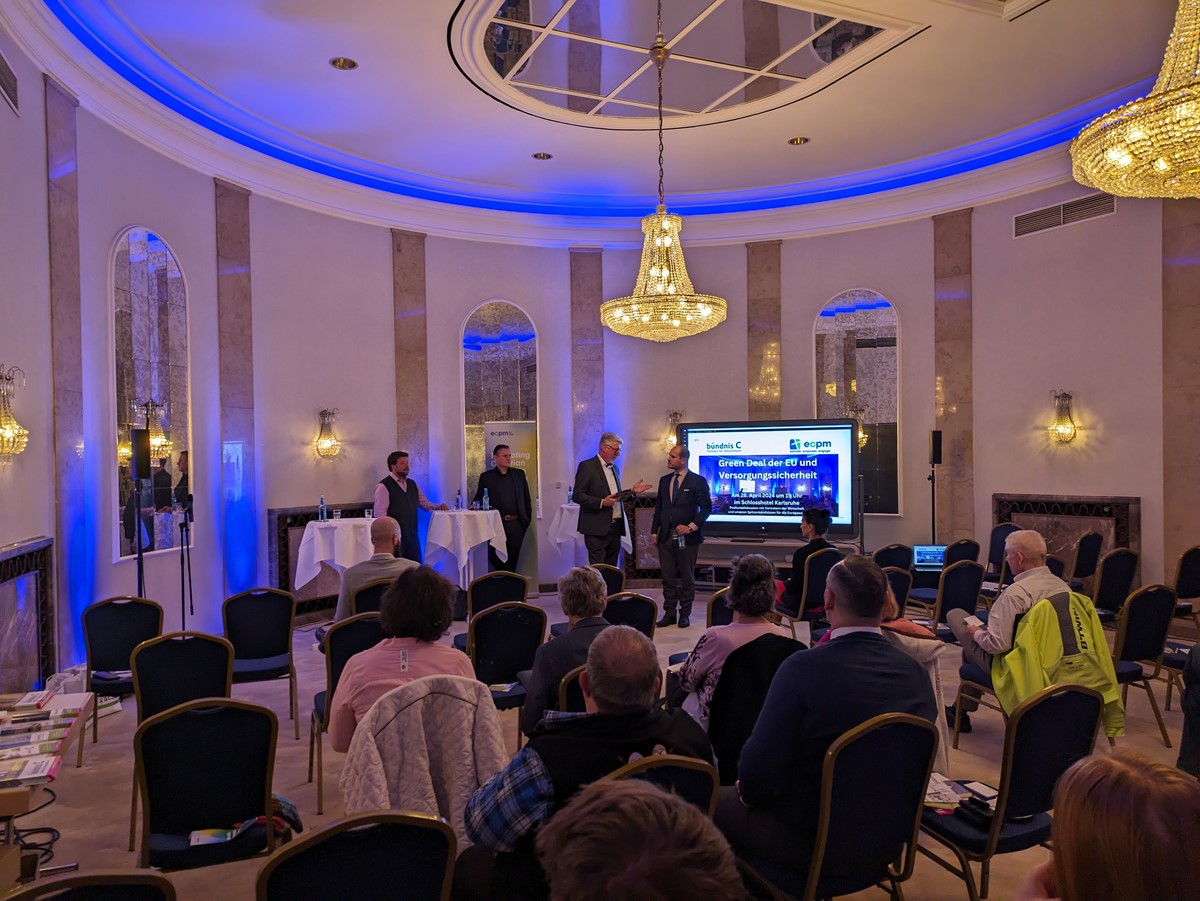
Thursday, April 25, 2024
The EU Green Deal and Supply Security
Part of our European election campaign, we are looking at and analysing one of the largest and most costly legislative packages in the Union: the European Green Deal (EGD). The event organized together with Bündnis C – Christen für Deutschland focused in particular on security of supply in 3 key areas: food, energy and housing.
We are convinced that the sensible use of the natural resources is a Biblical mandate and we need to improve resilience and act in responsible ways for the sake of future generations. This event aimed to inform the voters in Germany of the details of the Green Deal and the inherent challenges, as well as to explore the opportunities for innovation and adaptation to the new climate realities.
Andreas Schick, Managing Director of Netze-Gesellschaft Südwest mbH, spoke about the energy sector and in particular about hydrogen being the 'transition fuel' which could run on some of the existent gas infrastructure, is cleaner than fossil fuels, will reduce greenhouse gas emissions and improve our energy security while we develop other types of renewable energy.
Helmut Jäger, Chairman of the Karlsruhe District Farmers' Association, addressed the food security by detailing the Farm-to-Fork strategy and underlining its shortcomings. In his view, although the European Commission's strategy wants to make a significant push towards reducing farming and towards turning farming organic, in the end it will hinge on the market demands. He also informed the audience of the hidden costs of farming and dispelled the myth that the agri sector gets all the subsidies it needs to function.
Dominic Potters, entrepreneur and board member of the European Christian Political Youth (ECPYouth), tackled the housing security issues. He presented the requirements in the Green Deal regarding housing, old and new (insulation, carbon footprint, sustainable construction materials etc.), as well as the housing shortages and the ever-rising costs. As Christians we should not disengage or wholly dismiss the policies prescribed in the EGD, but take this opportunity and be creative about how we do things. We can all play a part in making our cities greener, in adapting buildings to make them more sustainable, being conscious of our consumption, choose transportation which pollutes less etc. Potters provided the city of Antwerp as an example implementing some of these efforts, sometimes successfully, other times with mixed results. He recommended wisdom and a balanced approach towards the housing policies stipulated in the EGD: some of them make sense and can be implemented fairly easy while others are counter-intuitive, radical and/or expensive and threaten to accelerate poverty or leave areas behind.
Chairwoman of Bündnis C – Christen für Deutschland and Vice-President of the ECPM, Karin Heepen, concluded the event by echoing the points made by previous speakers, as well as adding ECPM's commitment to relational thinking (meaning change and innovation should be bottoms-up and should benefit all shareholders: people, the environment and businesses). She spoke critically of the associations between big business and politicians or the government and advocated for support and priority given to SMEs and family-based businesses, which are the backbone of a healthy economy.